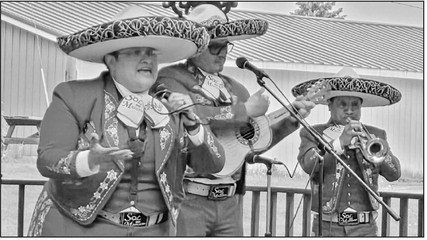Don’t let libraries become political tools
A recent federal court ruling opens the door to further politicization of library materials and rejects the premise that the public has a right to access unbiased information.
On May 23, the full 5th Federal Circuit Court of Appeals in New Orleans ruled against seven library patrons who were challenging the removal of materials from the Llano County Library System in Texas. As reported in the Austin American-Statesmen, in 2022 the patrons filed a lawsuit challenging the removal of 17 books due to their “content on race, gender and sexuality as well as some children’s books that contained nudity.”
In a 10-7 decision, the judges ruled against library patrons asserting the public has a protected right to know under the First Amendment.
Judge Stuart Kyle Duncan, writing for the majority rejected that argument, writing, “Plaintiffs cannot invoke a right to receive information to challenge a library's removal of books.”
In his opinion, Duncan rejected what he described as an effort to create a “brave new right to receive information from the government in the form of taxpayerfunded library books. The First Amendment acknowledges no such right.”
Instead of relying on public libraries to have access to unbiased and broad-ranging information, Duncan instead asserts that the patrons could order books online, buy them from a bookstore or borrow them from a friend.
Duncan dismissed concerns and said “Take a deep breath, everyone. No one is banning (or burning) books.” It is hard not to get riled up when it comes to limits on the right to access information and the potential for political purges of library reading materials depending on the personal beliefs of the people managing the collection, regardless of what those beliefs may be.
While a great deal of time, money and headlines are spent on national level arguments over the health of American democracy and risk of expanded authoritarianism, the decision by the 5th Circuit Court of Appeals is a reminder that battles for democracy and freedom are won or lost at the local level. They are won or lost based on the people appointed by local officials to serve on library boards, as well as those serving on school and county boards. Ideals of free speech and the promise of access to reliable and unbiased information are protected by library directors and staff members who must be willing to face political storms to ensure that people of all ages have access to information.
Judge Duncan is right that the ruling does not directly burn any books or impose blanket bans, but what it does do is chip away at the foundations of freedom. After enough time and enough people chipping away, the foundation crumbles.
There must be renewed effort at the local and state level to enshrine local libraries as a place where accurate and reliable knowledge is available to all seek it out, regardless of politics and preferences.
Central Wisconsin Publications Editorial Board consists of publisher Kris O’Leary and Star News editor Brian Wilson


